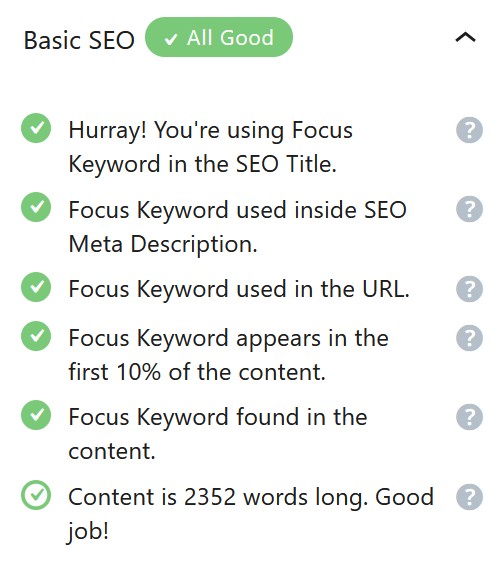How Google Determines Content Quality & How to Rank Higher
How Google Ranks Content: Understanding Google’s Content Quality Assessment
Google’s search algorithm is designed to deliver the most relevant, valuable, and high-quality content to users. The evaluation of content quality is based on multiple factors, including E-E-A-T (Experience, Expertise, Authoritativeness, Trustworthiness), the Search Quality Rater Guidelines, and Google’s AI algorithms like RankBrain and BERT.
Table of Contents

E-E-A-T: The Core of Google’s Content Evaluation
E-E-A-T stands for Experience, Expertise, Authoritativeness, and Trustworthiness. It plays a crucial role in determining whether content is valuable and reliable.
1. Experience
- Google prioritizes content from people who have first-hand experience on a subject.
- Personal stories, case studies, or real-world applications help boost credibility.
- Example: A doctor’s experience writing about medical conditions holds more weight than generic health articles.
2. Expertise
- Google assesses the knowledge depth of the author.
- Subject-matter experts rank better than generalist content.
- Example: A certified nutritionist discussing diet plans has more credibility than an unqualified blogger.
3. Authoritativeness
- Websites recognized as industry leaders rank higher.
- Backlinks from authoritative sources strengthen credibility.
- Example: A finance website cited by Forbes or Investopedia gains more trust.
4. Trustworthiness
- Google values accurate, transparent, and fact-checked content.
- SSL security, privacy policies, and clear author information enhance trust.
- Example: Medical websites referencing studies from PubMed rank higher than opinion-based sites.

Google’s Search Quality Rater Guidelines
Google employs human raters to evaluate websites using the Search Quality Rater Guidelines. Here’s what they assess:
- E-E-A-T signals to judge content reliability.
- Content purpose – Is it genuinely helpful, or just clickbait?
- YMYL (Your Money or Your Life) topics – Health, finance, legal, and news content require higher trustworthiness.
- Page design & UX – A well-structured, ad-light page enhances user experience.
Google’s AI Algorithms: RankBrain & BERT
Google’s AI-driven algorithms play a significant role in ranking content.
1. RankBrain: AI for User Intent & Relevance
- Uses machine learning to understand search intent.
- Prioritizes content with high engagement (low bounce rate, long dwell time).
- Tip: Write engaging, valuable content that keeps users on the page.
2. BERT: AI for Contextual Understanding
- BERT (Bidirectional Encoder Representations from Transformers) understands natural language better.
- Helps rank content that answers complex, conversational queries.
- Tip: Write in a clear, conversational tone with naturally placed keywords.
Tips to Improve Content Quality & Rank Higher
1. Optimize for E-E-A-T
✅ Showcase author credentials & expertise.
✅ Get backlinks from trusted sources.
✅ Keep content fact-checked & transparent.
2. Write for Users, Not Just SEO
✅ Match content with search intent (informational, transactional, navigational).
✅ Use a conversational & engaging tone.
✅ Format content for readability (headings, bullet points, images).
3. Improve On-Page SEO
✅ Include target keywords naturally.
✅ Write SEO-friendly titles & meta descriptions.
✅ Optimize images with alt text.
4. Enhance User Experience (UX)
✅ Ensure fast-loading pages (improve Core Web Vitals).
✅ Make content mobile-friendly.
✅ Reduce intrusive ads/pop-ups.
5. Update & Refresh Content Regularly
✅ Add new insights, data, and research.
✅ Optimize for emerging search trends.
✅ Keep content relevant & evergreen.
Frequently Asked Questions (FAQ)
Q1: What is E-E-A-T, and why does it matter for SEO?
E-E-A-T stands for Experience, Expertise, Authoritativeness, and Trustworthiness. Google prioritizes content that demonstrates expertise and credibility, especially for YMYL topics (finance, health, law).
Q2: How can I improve my website’s E-E-A-T?
⦿ Highlight author bios & credentials.
⦿ Get backlinks from high-authority sites.
⦿ Maintain factual accuracy & transparency.
Q3: What is the role of RankBrain in SEO?
RankBrain is Google’s AI that helps understand search intent and user behavior. It ranks content based on engagement metrics like click-through rate, dwell time, and bounce rate.
Q4: How does BERT impact SEO?
BERT helps Google understand natural language and complex queries. Writing clear, conversational content improves your chances of ranking for long-tail searches.
Q5: How often should I update my content for SEO?
Regular updates (every 3-6 months) help maintain rankings, especially for evergreen and competitive topics.
Final Thoughts
Ranking high on Google requires high-quality, well-researched, and user-focused content. By implementing E-E-A-T principles, optimizing for AI-driven algorithms like RankBrain & BERT, and improving user experience, you can boost your rankings and drive organic traffic. Keep your content fresh, engaging, and authoritative, and you’ll stay ahead in the SEO game!
Let’s connect and improve your website’s rankings today! 🚀
Contact via WhatsAppKeywords (LSI & Variations): Google ranks content, SEO content quality, Google E-E-A-T guidelines, Search quality rater guidelines, Improve Google rankings, Content optimization for SEO, How to rank higher on Google, RankBrain and BERT SEO impact, High-quality content SEO, Website authority and trust, Google AI search ranking, Best SEO strategies 2025, SEO ranking factors